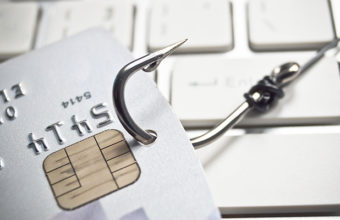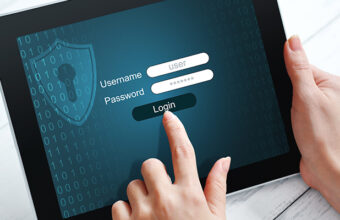Quishing (Scam QR Codes)

Fraudsters create fake QR codes that take you to a website that looks real. This fake site is made to steal your money or identity by getting your information or infecting your device with malware.
Suspicious emails (Phishing)

Fraudsters sometimes send emails pretending to be from your bank, credit card company or another company you trust, usually asking you to click on a link or open an attachment. The emails may seem genuine and convincing but are designed to trick you into sharing your personal information, such as your username, full PIN or credit card number. They will often make urgent threats and try to scare you into providing your details.
Suspicious texts (Smishing)

Fraudsters may send texts pretending to be from Bank of Ireland. They target mobile users by sending texts with links to fraudulent websites to trick you into providing your online banking details or card details. Remember: Bank of Ireland will never send you a link asking you to confirm your personal banking details.
Suspicious calls (Vishing)

Be vigilant if you receive a phone call out of the blue from someone claiming to be from your bank, credit card company or another company you trust. They may claim that your account has been compromised and ask you for your bank card or bank account details. Remember: Bank of Ireland will never ask you to transfer money out of your account.
Using social media

The more information you post online, the more you put yourself at risk of becoming a potential target for fraudsters. For example, if a fraudster obtains your full date and place of birth, they could try to use this information to access your accounts.
Card and ATM safety

As with all financial transactions, please use discretion when using your card or an automated teller machine (ATM).
Using Public Wi-Fi

When you access public Wi-Fi, you can never be sure who has set up the network and, more importantly, you don’t know who is connected to it. Malicious users could intercept anything you are doing online including capturing your passwords and reading private emails.
Protect your devices

By clicking on a fake link in an email, text, your social media account, or on a pop-up ad online, you could be allowing malware to download and infect your device. Make sure that you properly protect your mobiles, tablets, laptops or computers to help safeguard against fraud.
Using strong passwords securely

Using a strong password makes it harder for fraudsters to gain access to your online accounts. A weak password can be cracked in less than five minutes. Make sure you know the recipe for creating strong passwords and how to keep them safe.
Shopping online

Today’s fraudsters are highly skilled at creating fake websites which appear genuine and persuading consumers to share payment information. Know what you can do to shop online safely.
Identity theft (Impersonation)

Identity theft happens when a fraudster steals your personal & financial information and uses it to impersonate you. Then they can do several things: access your bank accounts, open a new current or credit account in your name, change payment details for a supplier, take on new loan/s.
Remote access fraud

Fraudsters sometimes make “cold calls”, pretending to be from a reputable technical support or IT company. They persuade you to allow them to take control of your computer remotely over the phone so that they can fix, upgrade or protect your computer. They may ask you to log on to your online banking account or ask for bank, credit card or other personal details.
Money mules

Offers to make quick and easy money can seem appealing but this is a way that fraudsters use people as ‘money mules’. Young people and students are often being targeted and recruited as money mules. They receive stolen money into their account, then transfer it to another account, usually overseas, and keep some of the cash for themselves as ‘payment’.
Cryptocurrency

Cryptocurrency is a high-risk investment – if you invest in cryptocurrencies, you risk losing all the money you invested. In addition to the high-risk nature of cryptocurrency investments, fraudsters target people promising great returns in cryptocurrencies then steal their money. These scams can be very sophisticated, and hard to identify.